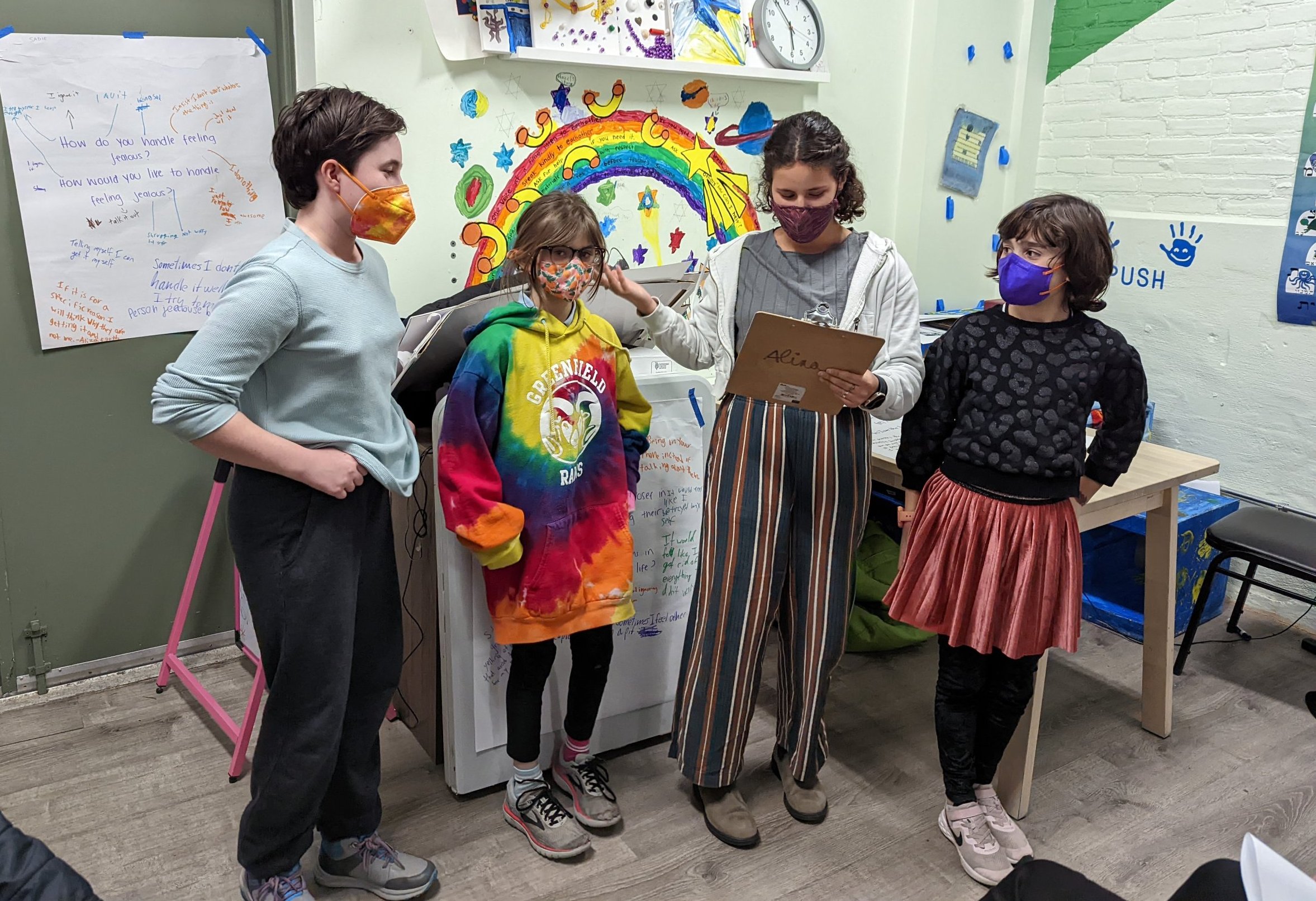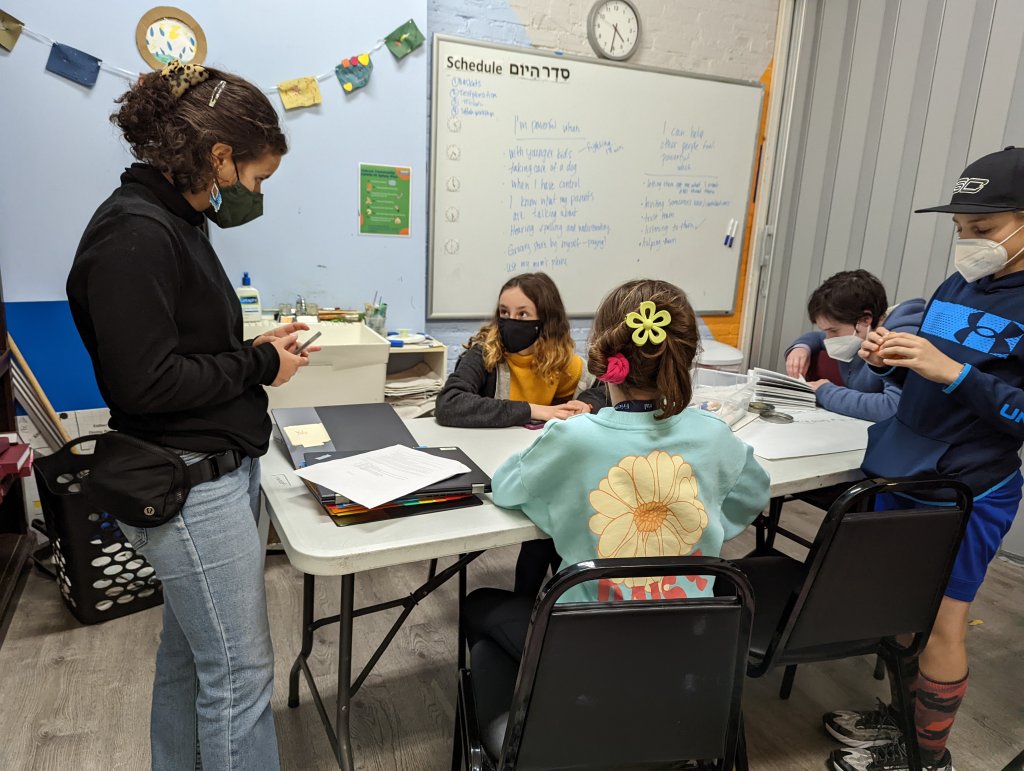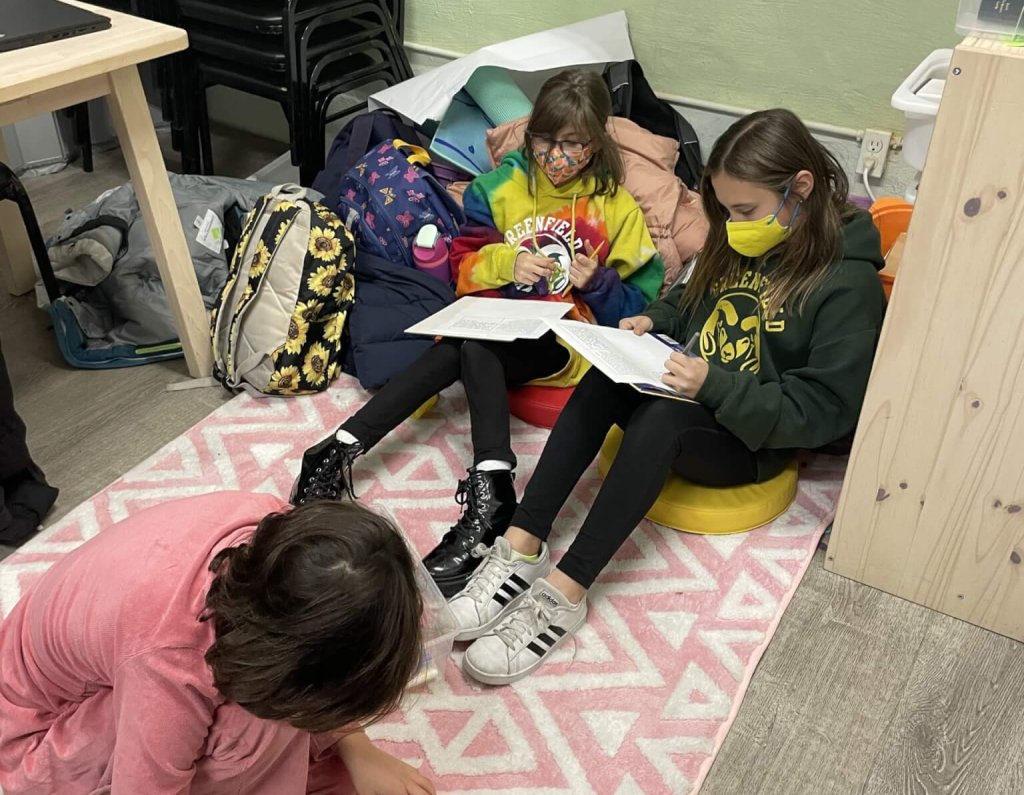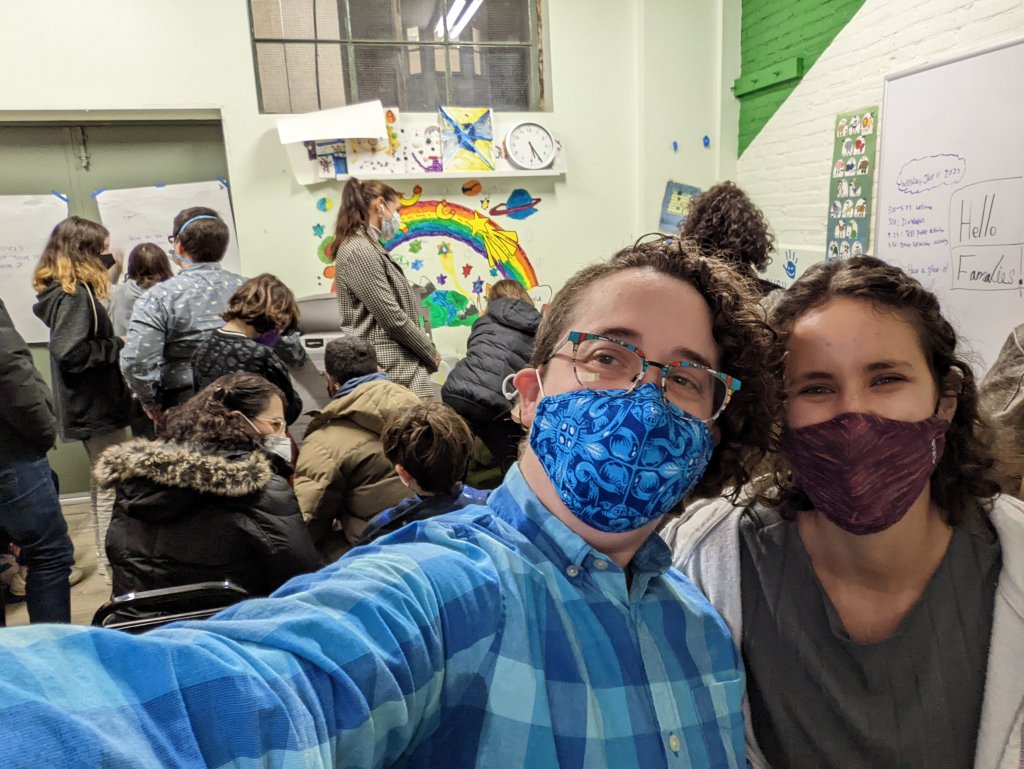
“I am more confused than I was before we started talking about this.” These words from an Anafim (4th-7th graders) learner brought a huge smile to my face. We were engaged in a debate about whether Pharaoh could be judged guilty of not letting Bnei Yisrael (the Children of Israel) go free from their bondage in Egypt. The three learners tasked with arguing for Pharaoh’s innocence initially met the task with a groan and an eye roll. After all, Pharaoh was clearly guilty! Over and over again we have learned that Pharaoh enslaved Bnei Yisrael and then only let them go after his people were ravaged by not one, or two, but ten terrible plagues. How could they possibly argue for his innocence? After some research and reading, the Anafim discovered that the Torah says that after every plague, Pharaoh was close to letting Bnei Yisrael go. So what happened? Each and every time, Adonai hardened or stiffened Pharaoh’s heart and Bnei Yisrael remained in captivity.

The Anafim on both sides of the debate made fantastic arguments. The guilty team maintained that Pharaoh was the one who enslaved Bnei Yisrael in the first place and so must clearly be guilty of not letting them go. The innocent team held that Pharaoh wanted to let the people go, but Adonai was taking away his ability to make his own decisions. After a lively session of back-and-forth discourse, we concluded that Pharaoh was both innocent and guilty. To close the conversation, each learner said a sentence about what they are curious to learn about in the future after our discussion of Pharaoh’s guilt. The Anafim learners were left with more questions than we started with: Do attorneys defend people they think are guilty? Can anyone be truly innocent? Can someone be innocent of a crime they are being tried for but guilty of another? Ultimately, I also left the conversation with more questions than answers, and I could not have been more proud.

As an educator, it can be hard to teach your students more difficult lessons. You show up to work, you teach, and you go home wondering if the values you are trying to inculcate are coming across. That day, I knew that the Anafim learners were leaving with at least one piece of knowledge: life is complicated. Pharaoh can be guilty and he can also be innocent. Adonai can be merciful, but they can also be cruel and unyielding. Here at Makom, we try to teach that gray areas can also be filled with a rainbow of colors.

